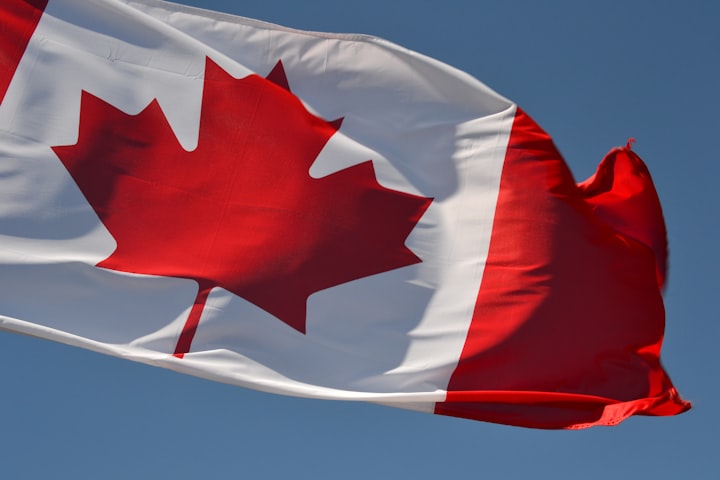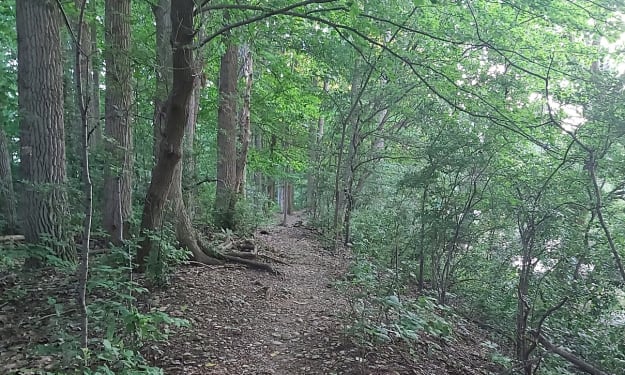215 Seconds of Silence at 7:51 p.m.
Why I won't be celebrating Canada Day 2021 in my usual manner in this year.

WARNING: If reading this piece causes any crisis or distress, call the Indian Residential Schools Crisis Line at 1-866-925-4419
``````````````````````````````````````````````````
Author's update: If you were not able to observe the moment of silence on Canada Day, I encourage you to take a moment of silence on your own sometime soon and, much like Remembrance Day, to honour the victims in an ongoing tradition with a moment of silence on National Indigenous Peoples Day (June 21).
``````````````````````````````````````````````````
Where to begin. Let's start with numbers:
215
In May 2021, 215 Indigenous children's bodies were discovered near a Catholic residential school in Kamloops, BC, Canada.
Two hundred and fifteen children were stolen from their families, kept in deplorable conditions, abused, humiliated, and later laid to rest in unmarked graves like disposed of garbage.
It's not my story to tell, but you can read about it here.
A short time later, another 751 graves were found near a different Catholic residential school in SK, only this time the grave markers had been deliberately removed.
Without a doubt, these figures are but a drop in what is sure to be an ocean of blood yet to be revealed to the public. All of the deaths, as well as the trauma of living survivors, are connected to a Catholic led, Canadian government-directed genocide of Indigenous peoples starting in the 1870s—not long after our Confederation on July 1, 1867.
And no, these schools are not a distant memory. The last residential school in Canada didn't close until 1996.
~~~~~~~~~~~~~~~~~~~~~~~~~~~~~~~~~~~~~~~
As explored in my piece Missing Branches, there is a long-buried, secret history on my mother's side of the family, most likely connected to the Catholic residential school system in NS or NB, Canada.
Lucky for us, my great-grandmother, "Jen", managed to save her children from being one of those bodies. But it was no small feat: it involved interracial marriage, changing religions, hiding her cultural history and traditional knowledge and quite a few aliases.

~~~
I have always been proud to be Canadian. Like so many others, I've laughed at American memes depicting their less than polite society, filled with outlandish public figures, and what seemed to be an overly independent, take what you can when you can at all costs breed of capitalism and consumerism.
At least until I turned a lens on my own culture and upbringing this year.
I've spent the last few weeks learning far too late in life that there are currently parts of Canada that do not have access to affordable food (no one should be asked to pay 53$ for a bag of flour), nor reliable sources of clean drinking water, nor readily available emergency services.
These are but a few of the critical issues that define the dichotomy which exists between those North of 60 and those to the South—not that this is the only area in Canada where disparity exists for Indigenous peoples, but it is undoubtedly a primary dividing line between the haves and have-nots in our supposedly equitable, fair country.
Factor in racial profiling and deadly police encounters, along with discriminatory health care treatment, and I'm not sure we have much to celebrate at the moment.
~~~
Before the graves, before I explored my history and before I heard first-hand accounts of life outside Southern Ontario, Canada Day to me meant running through the field behind my home with sparklers, waving flags, wearing Canada branded clothes, and watching fireworks displays with my family and friends, all of which was occasionally accompanied by a spontaneous, off-key rendition of our national anthem.
I loved every second of it, especially as a child, and I wouldn't exchange those memories for anything in the world.
~~~
Today, while I am still proud of my country, including: our multiculturalism, scientific achievements (such as the discovery of insulin), nationally subsidized healthcare system and (in general) the open-mindedness of its habitants, this year I won't be watching fireworks, and, unlike last year, it has nothing to do with Covid-19.
To be clear, I am not writing off celebrating national pride for the rest of my life; I'm simply taking a pause, and I invite you to do the same.
And though I do intend on celebrating our Confederation in a manner similar to that of my youth again someday, I will purposefully shift my focus to honouring new contributions of modern public figures, and remembering the victims of a not too distant genocide.
~~~
In order for us to move forward in unity, all Canadian citizens and inhabitants must collectively grieve for those lost to us forever, as well as publicly and privately validate the trauma inflicted upon survivors and their descendants. We have work to do: the vast majority of the 94 recommendations listed by the Truth and Reconciliation Commission in 2015 are not yet implemented.

This year, I intend on reading and listening with open eyes and an unbiased heart to those who need to speak their truths. I will not participate in racial gas-lighting by making or supporting comments like, "They aren't the only people who've suffered," nor "Those schools did do some good," nor "Get over it; it's not like current Canadians personally contributed to decisions made over 100 years ago."
Besides reading and listening, I will also take a moment of silence for 215 seconds at 7:51 p.m. to honor those victims we know of so far.
215 seconds is a small request, but it's a step in the right direction to turning over a new page in our history together. I hope you'll consider joining me, either this year or next.

About the author: Lesley Leatherdale
Admin at the Vocal Social Society
About the Creator
Call Me Les
Aspiring etymologist and hopeless addict of children's fiction.
If I can't liberally overuse adverbs and alliteration, I'm out!
Instagram @writelesplaymore
~&~
Reader insights
Outstanding
Excellent work. Looking forward to reading more!
Top insights
Compelling and original writing
Creative use of language & vocab
Easy to read and follow
Well-structured & engaging content
Excellent storytelling
Original narrative & well developed characters
Expert insights and opinions
Arguments were carefully researched and presented
Eye opening
Niche topic & fresh perspectives
Heartfelt and relatable
The story invoked strong personal emotions
Masterful proofreading
Zero grammar & spelling mistakes
On-point and relevant
Writing reflected the title & theme






Comments (1)
Very eye opening story!!